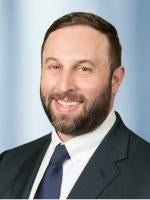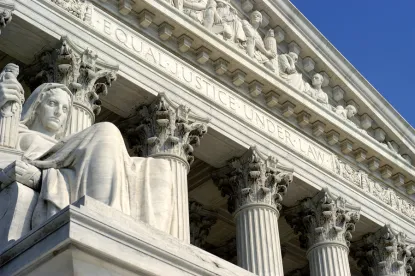In a 5-4 decision, the U.S. Supreme Court denied an application for injunctive relief filed by South Bay United Pentecostal Church (Church) challenging California Governor Gavin Newsom’s Stay-At-Home order and 4-stage reopening plan as it relates to religious worship gatherings. The Church, which has between 3 and 5 services each week with 200 to 300 congregants, sought to enjoin the restrictions which limit attendance at places of worship to 25% of building capacity or a maximum of 100 people. The U.S. Court of Appeals for the Ninth Circuit denied the Church a temporary restraining order and preliminary injunction to enjoin the religious worship restrictions. A week later, the Supreme Court denied the Church’s application for injunction relief. Justices Ginsburg, Breyer, Kagan and Sotomayor voted to deny the injunction but did not write an opinion. Chief Justice Roberts concurred in denying the injunction and filed a short opinion. Justice Kavanaugh filed a dissenting opinion, which was joined by Justices Thomas and Gorsuch. Justice Alito dissented but did not write an opinion.
Chief Justice Roberts began his concurring opinion by noting the threat of COVID-19:
The Governor of California’s Executive Order aims to limit the spread of COVID-19, a novel severe acute respiratory illness that has killed thousands of people in California and more than 100,000 nationwide. At this time, there is no known cure, no effective treatment, and no vaccine. Because people may be infected but asymptomatic, they may unwittingly infect others. The Order places temporary numerical restrictions on public gatherings to address this extraordinary health emergency. State guidelines currently limit attendance at places of worship to 25% of building capacity or a maximum of 100 attendees.
Chief Justice Roberts then noted that California’s guidelines “appear consistent” with the Free Exercise Clause of the First Amendment because “[s]imilar or more severe restrictions apply to comparable secular gatherings, including lectures, concerts, movie showings, spectator sports, and theatrical performances, where large groups of people gather in close proximity for extended periods of time.” He wrote that dissimilar activities such as operating grocery stores, banks, and laundromats, are exempted or treated more leniently. According to Chief Justice Roberts, these activities are dissimilar to religious gatherings because “people neither congregate in large groups nor remain in close proximity for extended periods.” He concluded by stating that responding to the threat of COVID-19 – an “area[] fraught with medical and scientific uncertainties” – should be left to political officials, not an unelected federal judiciary.
Justice Kavanaugh’s dissent contends that churches are the same as businesses and should be treated the same. According to his dissenting opinion, California’s restrictions violate the First Amendments because the “basic constitutional problem is that comparable secular businesses are not subject to a 25% occupancy cap, including factories, offices, supermarkets, restaurants, retail stores, pharmacies, shopping malls, pet grooming shops, bookstores, florists, hair salons, and cannabis dispensaries.” Although Justice Kavanaugh states that California has a compelling governmental interest in combating the spread of the coronavirus, he, Justice Thomas, and Justice Gorsuch believe that the Order is not narrowly tailored to achieve that interest, since the Church has offered to comply with the same rules regarding social distancing and hygiene as the other business uses. He then poses the following questions:
Assuming all of the same precautions are taken, why can someone safely walk down a grocery store aisle but not a pew? And why can someone safely interact with a brave deliverywoman but not with a stoic minister?
The dissenting opinion declares that there are alternative options available that would not discriminate against religion, including (a) allowing religious gatherings without restrictions so long as they are subject to the same social distancing and other health requirements as other secular activities, or (b) imposing reasonable occupancy caps across the board. California “may not take a looser approach with, say, supermarkets, restaurants, factories, and offices while imposing stricter requirements on places of worship,” wrote Justice Kavanaugh.
Chief Justice Roberts’ concurrence and Justice Kavanaugh’s dissent in South Bay United Pentecostal Church v. Newsom (U.S. Sup. Ct. May 29, 2020) are available here.



 />i
/>i
